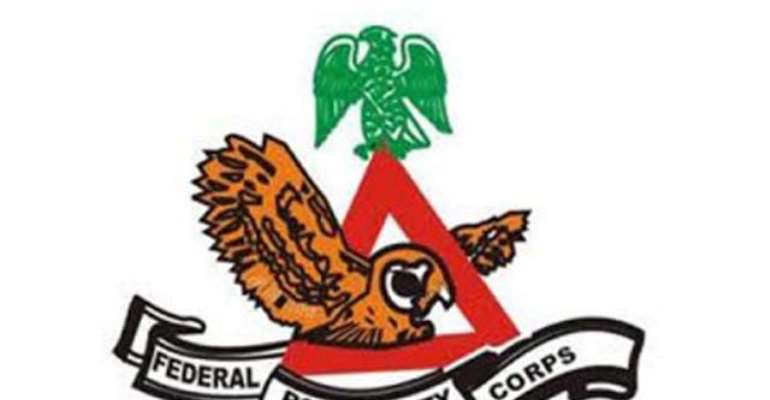Govt set to enforce Nigeria Road Safety Strategy

The National Economic Council has approved the enforcement of Nigeria Road Safety Strategy [NRSS] 2016-2018, a medium-term plan developed by the Federal Road Safety Commission [FRSC].
The federal government's enforcement of the strategy has now elevated the status of FRSC to the highest level with the Vice President, Prof Yemi Osinbajo as chairman of the implementation council. Mr. Boyoye Oyeyemi, Corps Marshal, FRSC disclosed these in a meeting with online editors in Lagos on Saturday.
Oyeyemi said the development of the strategy document is one of six new measures that FRSC has adopted to effectively stem the frequency of road crashes in Nigeria. 'Though progress is being made in reducing the frequency of road crashes in Nigeria, it is still unacceptable the number of deaths and injuries we record each year', the FRSC corps marshal said.
The strategy document, he said, makes a detailed exposition of all distressing issues that have contributed to the present high rate of road carnage – with about 4,000 lives and properties valued at close to N2 trillion lost in 2012 alone.
The vision set for NRSS is 'a country where road traffic crash results in no death' and its target is to reduce road traffic crash fatality rate by 35% by 2018, using 2012 as baseline. The initiative is raising a national call for a wide adoption of safe system approach to road safety management in Nigeria with the widest distribution of responsibilities ever witnessed in road safety management issues in Nigeria.
According to Oyeyemi, the beauty of the new arrangement is that states and local governments will take and implement their own responsibilities under NRSS, making road safety management a national task. Key responsibilities are spelt out and road safety target set annually and states will key in towards a new level of collaboration with FRSC.
NRSS has already identified gaps in road safety management issues in Nigeria and has developed strategic initiatives to address them. The initiatives include introduction of standard templates to capture and report relevant traffic data, legislate the establishment of motor vehicle administration agencies in states and implement design standards for all road types.
Others are to conduct road safety audit and safety impact assessments, develop and implement awareness campaigns on proper road use and provide additional medical equipment and emergency rescue ambulances, among others.
Oyeyemi disclosed that the development of NRSS is in response to the UN Decade of Action Declaration for Road Safety (2011-2020), which demands that member countries should develop a strategy to provide a direction towards achieving the vision for road safety, using the Safe System's Approach. It was also necessitated by the Country Capacity Review (CCR) conducted by the World Bank in 2010 to measure Nigeria's capacity to deliver on road safety, the FRSC boss said.
A National Road Safety Advisory Council (NaRSAC) has been proposed to oversee the implementation of the NRSS and the council will be headed by the Vice President as its chairman. A key role of the council is to ensure co-ordination between federal, states and local governments in achieving road safety targets.
Oyeyemi further disclosed that in addition to the enforcement of NRSS, FRSC has adopted other measures designed to reduce the crash fatality rate on Nigerian roads. These include speed limiting device enforcement, as speed limit violation has remained one of the most probable causes of road traffic crashes, accounting for 26.5% of cases in 2015.
FRSC is also set to begin an awareness campaign for mandatory rear seatbelt usage. 'As part of the Corps mandate to save lives and reduce fatalities in the event of RTCs, FRSC commands have commenced advisory enforcement on the use of rear seatbelts', Oyeyemi said. He reminded vehicle drivers of the dangers of using phones while driving, stressing that reading text messages while driving is the most dangerous aspect of using the phone on the steering and must be avoided at all cost.
Another measure being applied is in respect of overloading violations, which he observed happen to the points of extremities on our roads. Oyeyemi said a minimum of 4,000 vehicles are arrested daily for excessive overloading and that FRSC is intensifying measures in this direction even amidst the challenges of deliberate attacking and killing of its officers stationed for such arrests on the roads.
Oyeyemi extended his open hands of collaboration with the entire public through a 3-digit national toll-free number [122] for emergency road crash reporting, which he said is pivotal in saving lives. He asked the press and the general public to make use of the number also to report misbehaviours of his officers in the course of their duty, promising that proper disciplinary actions will be taken in such cases.
He also announced the availability of Information Verification Portal - the FRSC's databank offering instant verification of drivers' licences and instant verification of vehicle plate numbers.

